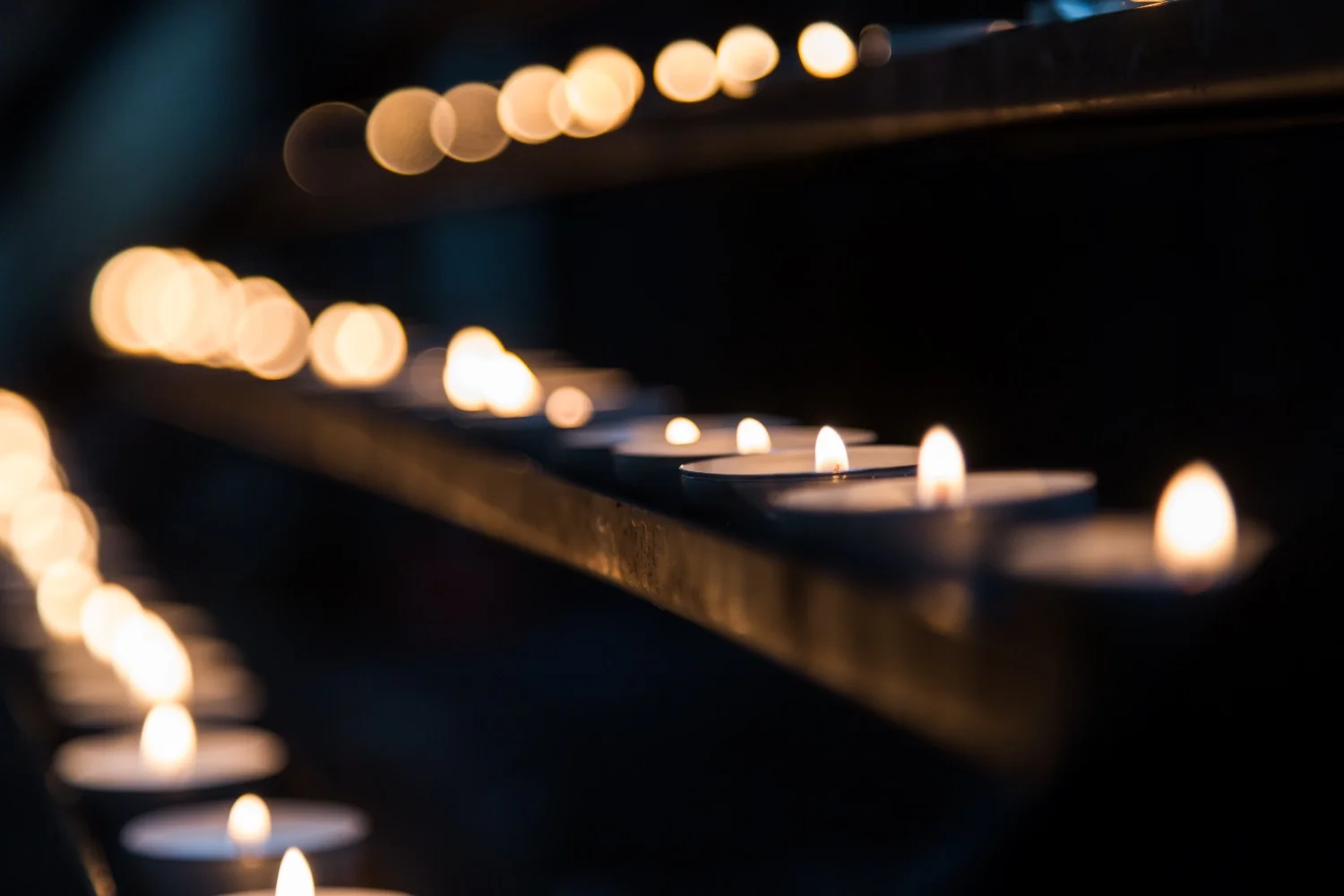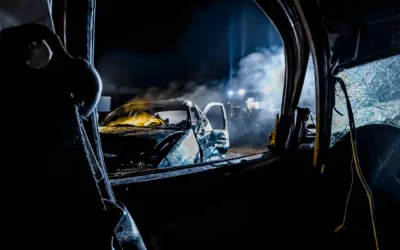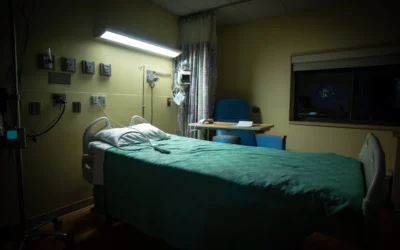Wrongful death claims in Utah
If you have lost a loved one in a fatal accident, you know how it hard it can be to move on and piece your life back together. It’s hard because you have lost that person’s love and affection. You have lost their companionship, comfort, and love. You also may have lost a lifetime of financial and emotional support. Losing a loved one can affect every aspect of your life: intellectual, emotional, spiritual, financial, and the day-to-day practical.
It’s hard to move on, but you find a way to do it. Piecing your life back together often requires accepting lifestyle changes, financial shortfalls, and new responsibilities. Eventually you accept those changes and adjust to a new way of life. But doing that is ever more difficult when someone’s negligence caused your loved one’s wrongful death.
If the negligence of a person, business, employer, or corporate entity caused or contributed to your loved one’s death, you may be entitled to a significant amount of compensation. Utah’s laws give you the right to make the responsible parties pay for the wrongful death of your loved one. Outlined below are some of the considerations related to wrongful death claims in Utah.
what is a wrongful death under utaw law
A wrongful death occurs when a person is fatally injured as a result of a third-party’s negligent actions or inactions. Fatal accidents can happen in public spaces, the workplace, on the highway, or in any other location where people interact. Some of these accidents are nobody’s fault. Many of these accidents, however, are the fault of a third-party who acted negligently.
Wrongful death laws differ from state to state. Each state, however, has laws in place to allow the decedent’s surviving family, heirs, or personal representative to pursue damages if the death is the result of negligence. Outlined below are important aspects of Utah’s wrongful death laws.
Under Utah law, a “wrongful death” is one caused by the “wrongful act or neglect” of another. See Utah Code § 78B-3-106 (2021). Under this definition, a Utah wrongful death occurs when a death is caused by:
- A third-party’s negligent conduct
- A medical professional’s medical malpractice, or
- A third-party’s intentional act resulting in death (including criminal conduct).
what you must prove to establish a wrongful death claim in utah
Most wrongful death lawsuits are negligence claims.
To establish negligence under Utah law, the plaintiff must prove the following things: (1) defendant owed plaintiff a duty of care; (2) defendant breached that duty; (3) defendant’s breach of duty was the actual and proximate cause of plaintiff’s injury; and (4) plaintiff suffered damages as a result of defendant’s breach of duty. Proximate cause is “‘”that cause which, in natural and continuous sequence, produces the injury and without which the result would not have occurred. It is the efficient cause–the one that necessarily sets in operation the factors that accomplish the injury.”‘” Id. (quoting Mitchell v. Pearson Enters., 697 P.2d 240, 246-27 (Utah 1985).
Proximate causation is generally an issue for the jury, but a trial court may rule as a matter of law on the issue if: “‘(1) there is no evidence to establish a causal connection, thus leaving causation to jury speculation, or (2) where reasonable persons could not differ on the inferences to be derived from the evidence on proximate causation.’” Id. (quoting Steffensen v. Smith’s Management Corp., 820 P.2d 482, 287 (Utah App. 1991).
what is the burden of proof for a utah wrongful death claim?
A big difference between a criminal and civil lawsuits is the burden of proof. In a criminal prosecution for homicide, the prosecutor must prove the defendant’s guilt “beyond a reasonable doubt,” which is a high standard and can be difficult for the prosecution to prove. On the other hand, in a civil lawsuit for a wrongful death claim, the plaintiff must only prove the defendant’s negligence by a “preponderance of the evidence.” Under this standard, the plaintiff must only prove that it’s more likely than not that the defendant is responsible for the death.
Because there are two different standards, it is possible for a defendant to be found guilty in criminal court but liable for wrongful death in a civil lawsuit. You may remember that that is exactly what happened in the case of OJ Simpson. He was found innocent in the criminal trial but subsequently was held liable in civil lawsuits.
who can bring a wrongful death lawsuit in utah?
In Utah, a wrongful death claim is filed either by the decedent’s heirs or personal representative of the decedent’s estate. In addition, if the decedent was an adult under a guardianship, the legal guardian may bring the wrongful death claim.
Utah law provides that the following persons qualify as heirs to bring a wrongful death claim:
- the surviving spouse
- the surviving children (including adoptive children
- the surviving parent or parents, including adoptive parents
- the surviving stepchildren, if they are under 18 at the time of the stepparent’s death and were financially dependent on the deceased, and
If the personal representative or a guardian files a wrongful death claim, any damages recovered must be distributed to the deceased’s surviving family members.
what types of damages are available in utah wrongful death lawsuits
A wrongful death lawsuit is a civil lawsuit. As in other civil lawsuits, the defendant’s liability is expressed solely in terms of a money award. Money justice is not full justice and will never bring your loved one back, but it is the only type of justice available in the civil system. This is the main difference from the criminal system, where a criminal conviction for a wrongful death may result in jail or prison time.
If a plaintiff prevails in a wrongful death lawsuit, the court will order the defendant to pay certain damages to the decedent’s heirs or personal representative. Most wrongful death general and special damages. Examples of these types of damages as follows:
- funeral expenses
- medical expenses
- past lost wages
- future lost wages
- loss of the possible inheritance, if the deceased was an adult
- pain and suffering (experienced by the decedent between the time he or she was injured and the time of death, and
- loss of the deceased’s affection, counsel, and advice.
In rare cases, the court can award punitive damages. Unlike the above-referenced damages, punitive damages are meant to punish the defendant’s intentional or reckless conduct in the hopes that it will defer such conduct in the future.
benefits for wrongful death heirs
Wrongful death heirs are entitled to the value the decedent’s lost support and services from the date of the decedent’s death. Some examples are set forth below:
- Surviving spouse: the decedent’s surviving spouse may be entitled to damages for loss of companionship, mental pain and suffering, and protection.
- Minor children: the decedent’s minor children are entitled to damages for lost parental care, companionship, guidance, instruction, and pain and suffering.
- Parents of a deceased minor child: the parents of a deceased minor child are entitled to damages for mental pain and suffering from the injury date.
- Parent of a deceased adult child: the parents of a deceased adult child are entitled to damages for mental pain and suffering from the injury date if there is no surviving spouse.
- The estate’s personal representative: the personal representative of the decedent’s estate may be entitled to lost income and other costs designated under state statutes.
how long do you have to file a wrongful death lawsuit in utah?
Like every state, Utah has time limits for filing wrongful death and other lawsuits. These time limits are referred to as statutes of limitation. If you do not file your claim within the relevant statute of limitations, you will lose the claim and be barred from recovering damages.
Under Utah law, a wrongful death claim must be filed within two years from the date of the death or within one year of the date of the death if the claim is against a government entity (for example claims against a city or state agency).
what type of accidents result in wrongful deaths in utah
Workplace Accidents: Recently, the Bureau of Labor Statistics documented 5,250 workplace deaths nationwide. These deaths occurred in law enforcement, construction, roadway, manufacturing, automotive, delivery, and many other types of jobs. A large number of workplace deaths occur in construction. The Occupational Safety and Health Administration has found that many construction injuries result from the “Fatal Four,” including “falls, struck by object, electrocutions, and caught-in/between.”
Auto Accidents: The National Highway Transportation Association’s 2020 crash statistics show that 38,680 people died in auto accident on roads and highways. The Utah Department of Transportation’s 2020 statistics show that 256 people died in auto accidents on Utah roads. on America’s roads and highways. These deaths often involve speeding, distracted driving, and drivers who are driving under the influence.
Trucking Accidents: According to the National Highway Traffic Safety Administration, an estimated 4,895 people died in trucking accidents, which is slightly down from the 5,005 fatalities in 2019. Many of these fatalities are caused by truck driver’s who are too tired to be driving or who are distracted or driving under the influence of drugs or alcohol. Truck driver’s are held to a higher safety standard because truck accidents are so much more dangerous that auto accidents given the weights and forces involved.
Motorcycle Accidents: It is estimated that there were 5,458 motorcycle accidents in 2020. This number represents a 9% increase from 2019 and is the highest number of motorcycle fatalities ever recorded. The Utah Department of Transportation’s 2020 Statistics show that there were 1077 motorcycle accidents in Utah in 2020, 45 of which were fatalities. Motorcyle riders are vulnerable to catastrophic injuries when involved in motor vehicle accidents. Many driver’s fail to motorcycle riders, resulting in significant numbers of motorcycle accidents every year.
Drownings: The Center for Disease Control and Prevention documents an average of 3,536 drownings per year. These drownings occur in public pools, friend’s pools, neighbor’s pools, recreation areas, public lakes and rivers, and other waterways. Many of these horrible accidents involve children who drowned because of a property owner’s failure to institute adequate safety measures.
Falls: The Centers for Disease Control estimates that there were 37,595 fatalities in 2019 resulting from unintentional falls. These accidents occur in restaurants, workplaces, public sidewalks and roadways, grocery stores, retail and other locations. They are often the result of a property owner’s failure to remedy unsafe conditions on the property.
Medical errors: Unfortunately, medical workers commit mistakes in providing medical care. A Johns Hopkins study found that medical malpractice is the third leading cause of death in the United States.
who is responsible for wrongful death damages in utah?
As outlined above, a wrongful death claim must meet the same standards of proof as any other negligence claim. To establish that a person or entity is responsible for your loved one’s death, you must prove that they failed to meet a legal duty and that their failure caused fatal injuries.
- Workplace liability: If an employee is injured at work, worker’s compensation benefits cover his medical expenses and provide for limited damages. Generally, worker’s compensation is the exclusive remedy against an employer, meaning that an employee or an employee’s family is generally prohibited from suing an employer for damages under Utah law (assuming the employer had workers’ compensation insurance). Depending on the circumstances, however, an employee’s family may be able to bring claims against third-parties for a wrongful death accident at work. For example, the family could bring claims against a sub-contractor, a property owner, a lessee of the property, or a non-employee who was responsible for the accident. If defective or malfunctioning machinery or equipment causes a fatal workplace injury, the family could also bring potential claims against the manufacturer, designer or distributor.
- Motor Vehicle Accident: The decedent’s family may file a lawsuit against the driver of a vehicle responsible for decedent’s death. In certain circumstances, the decedent’s family may also bring claims against the owner of the vehicle if the owner negligently entrusted the vehicle to the driver responsible for the accident. The owner may also be liable of the driver responsible for the accident was an agent of the owner’ of the vehicle.
- Truck accident: As with motor vehicle accidents, the decedent’s family may file a lawsuit against the driver of a semi-truck responsible for decedent’s death. In certain circumstances, the decedent’s family may also bring claims against the trucking company who owned the semi-truck if the owner negligently entrusted the vehicle to the driver responsible for the accident. The owner may also be liable of the driver responsible for the accident worked for the trucking company. Wrongful death claims against trucking companies often involve claims of negligent hiring, training, and supervision. A trucking company has liability exposure if it knew their employee had a bad driving history and they allowed him to drive anyway. In addition, a maintenance or repair company for the semi-truck could have liability exposure if its improper maintenance causes an accident. The manufacturer could also be held liable if its defective vehicle or component causes or contributes to a fatal accident.
- Premises liability: Under Utah law, property owners are legally responsible for unsafe conditions on their property resulting in the death of an invitee on the property. In addition, the property owner’s maintenance contractors, security service, tenants, and others could share the owner’s responsibility.
- Product liability: Under Utah law, the manufacturer, designer, or distributor of a product may be held liable when a product defect causes fatal injuries.
- Medical negligence: Under Utah law, medical professionals are liable for a patient’s wrongful death if the death is the result of the professional’s breach of the standard of care. The medical professional’s employer may also be held liable for negligent hiring, training, and supervision, among other things.
early steps taken by insurance companies in wrongful death claims.
Negligent parties in wrongful death lawsuits are generally defended by insurance companies. Because wrongful death cases involve significant amounts of money, insurance companies and their lawyers go to great lengths to defend wrongful death claims in Utah.
They begin defending wrongful death claims from the moment they receive a claim or report involving a wrongful death. Outlined below are some of the tactics they employ.
- Recorded Statements. Insurance companies often defend against wrongful death claims by obtaining recorded statements from defendants and witnesses immediately after an accident. They use language and questions specifically designed to illicit responses from the interviewees to protect against liability.
- Early Inspections. Insurance companies often become aware of wrongful death claims long before the law firm representing the decedent’s estate. As a result, they have a significant head start. They often use it by inspecting and investigating accident scenes, products, and other items of personal property involved in the wrongful death.
- Plaintiff Background Checks. Insurance companies spend significant amounts of money and resources investigating the background of the decedent and his or her family. They will go to great lengths to make the decedent’s life look “less valuable” or to make it appear that the decedent and his or her heirs did not have strong relationships. In doing so, insurance companies will investigate a decedent’s educational background, work history, criminal history, credit history, lifestyle and family background.
- Negotiation Tactics. Before a lawsuit is filed, insurance companies may reach out directly to family members to offer to settle the case. They do this in the hope of employing unfair negotiating tactics with family members who are unrepresented by counsel.
how do defendants defend themselves in wrongful death lawsuits?
Insurance companies often will not settle wrongful death claims without a lawsuit. They have deep pockets, but do not pay willingly. Wrongful death lawsuits are costly and time consuming. They often involve expensive discovery, including depositions, expert testing, retention of expert witnesses, and preparation of exhibits. Insurance companies often use these facts to try to get the decedent’s family to settle prior to filing a lawsuit.
If a lawsuit is filed, insurance companies often employ many of the following defenses to a wrongful death claim under Utah law:
- No Duty. Defendants claim that they did not owe a duty of care to the decedent. For example, a property owner may contend that it did not owe a duty of care to someone who died while trespassing on its property.
- No Breach: Defendants may contend that (although they owed a duty to defendant) that they did not breach their duty to the decedent. For instance, a motorist may claim no breach of duty by arguing that he or she did not in fact run a red light in motor vehicle case.
- Assumption of risk: Defendants may contend that the decedent knew and accepted the risks that caused their fatal injuries.
- No defect: A product manufacturer may claim that its product was not defectively designed or manufactured.
- Mitigation. Defendants may claim that the decedent and/or the decedents heirs did not mitigate their damages associated with the wrongful death.
- Apportionment. Defendants may contend that the decedent him or herself were partially to blame for the accident. In that situation, the defendants may ask the jury to apportion or reduce the amount of damages accordingly to account for the decedent’s role in the accident.
- Damages: As outlined above, defendants may seek to use investigative and background information to diminish the value of wrongful death claim.
shane gets results for wrongful death claims in utah
Shane Gosdis has provided years of compassionate legal representation in Utah wrongful death claims. He represents families in wrongful death cases across Utah and has achieved significant results on behalf of grieving families. He does it by investing significant amounts of time and money to work up his wrongful death cases. He leaves no stone unturned in seeking justice for the families he represents in wrongful death claims. He hires investigators, experts, and consultants in building the strongest case possible, including interviewing witnesses, documenting accident scenes, inspecting vehicles, and obtaining evidence from third-parties. He also does significant amounts of research to locate additional defendants, insurance policies, and assets.
Shane stays abreast of the latest technological advancements in wrongful death cases and relevant changes to Utah’s wrongful death laws. He has significant experience appearing before Utah courts to fight wrongful death claims and leverages his litigation experience to obtain superior results for Utah wrongful death clients. To schedule a consultation with Gosdis Law call or text 385-429-9960 today.




